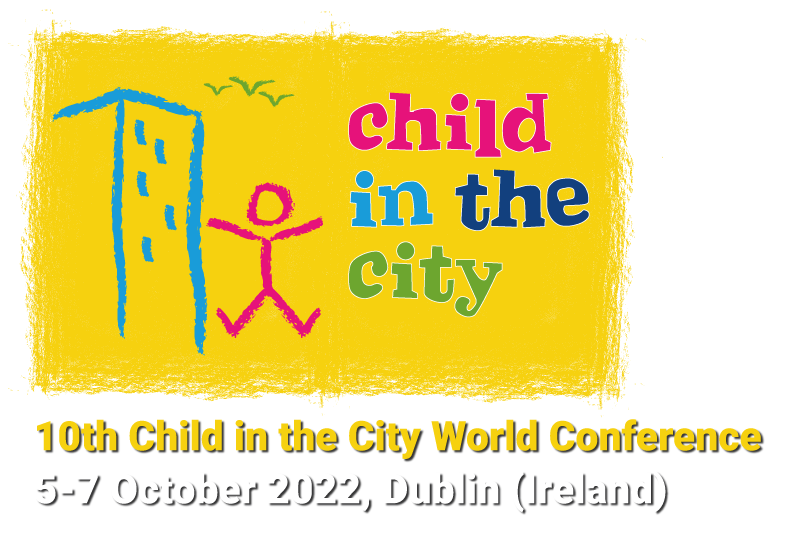Theme: Making Connections

With this Dublin conference, we aim to make connections between not only children and cities but also different disciplines and professionals.
Lia Karsten President of the Child in the City Scientific Programme Committee.
For this special edition of the Child in the City World Conference, we have chosen the overarching theme of Making Connections. With this Dublin conference, we aim to make connections between not only children and cities but also different disciplines and professionals, including the connection between the physical and the social domain. Through our interdisciplinary approach, we hope to bridge divides and open up new promising perspectives to make cities better places for children from all backgrounds. This conference offers a key opportunity for children’s professionals, city planners, social workers, academics, designers and policymakers to learn from each other how to build child-friendly urban futures.
Within this broad perspective of creating equality of access for all children and youth, the Child in the City conference at Dublin focuses specifically on the following five themes:
1. Connecting present with the past
Thinking of the past many people believe that ‘it all used to better’. It is well known that motor traffic was much lower in the past and children were playing outdoors more often than today. But what else can be told about former generations of children? What about poverty and inequality? What did urban childhood really look like? We can learn a lot from historical research on children’s everyday life in cities. What changes have taken place and why? What is still the same? And how can we protect our children against mistakes from the past? Our keynote speaker Carol Barron will introduce this first theme with her lecture on Irish childhoods of the past.
2. Connecting green and play
Efforts to make cities greener places to live are visible globally. This overall positive development of bringing nature to cities can be used to create not only greener environments but also playful cities. To reach this goal, it is critical that professionals from the social and physical disciplines work together. How can we profit from the ‘greening’ of cities in ways that (re)connect children, particularly children from disadvantaged neighbourhoods, to urban green and nature? This theme will be introduced by our keynote speaker Helen Woolley.
3. Connecting children’s (mental) health and play
Children’s health is a big issue nowadays and health problems are very much class related. In this conference, we want to make a connection between children’s health, the urban environment and children’s play, with a specific focus on the unequal class position of children and young people. We aim to focus not only on physical health problems like obesity but also on mental health problems, as we see an increase of particularly teenagers and youth with mental health problems. What is the influence of the residential environment on young people’s health and what are the possible benefits of (outdoor) play to grow up in more healthy ways?
4. Connecting children’s participation to urban policies
Many cities all over the world are developing policies to ensure that children’s voice is being heard. Many programs connect children’s participation to create sustainable futures. What attitudes and framework conditions are important for the successful participation of children? How can we create future sustainable cities that really include children’s voices? And how do we support children to bring forward their ideas about the improvement of everyday life? This theme of participation will be introduced by keynote speaker Carlo Fabian.
5. Re-connecting children to society during/after COVID-19
During the pandemic, many children suffer a lot from social isolation, domestic violence, health problems, and educational losses. International comparative research shows that existing inequalities have only grown during the pandemic. How can we prevent feelings of disengagement? What do we know about children’s digital lives during the COVID-19 lockdown and how can we use digital technology to re-connect children in ways that help them recover? Keynote speaker Stephane Chaudron will share the results and lessons learned from the KiDiCoTi study.
